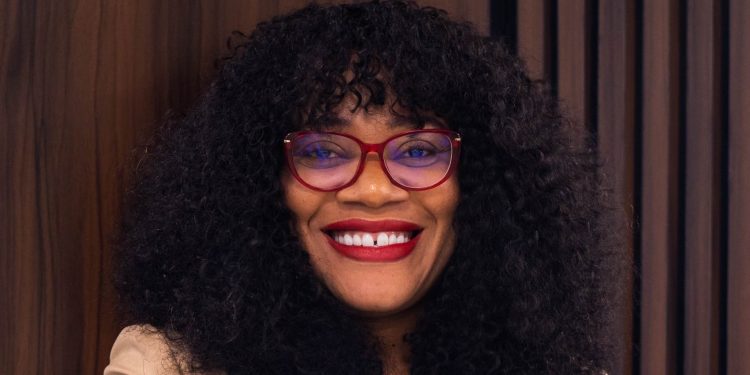How has the japa wave affected your friendships?
Ah, the japa wave! It’s fascinating really, I’ve become quite the cartographer, tracing the whereabouts of friends. I must admit, though, I’m suspicious. Did they really relocate due to career opportunities, or was it a sophisticated ploy to avoid my nonstop banter and obsession with bad puns? On a serious note, it has taught me the value of resilience and adaptability in maintaining friendships across borders and time zones.
How did your childhood friendships affect the way you view friendships?
Childhood friendships are intriguing. My standards then were quite simple – you have the coolest Power Rangers action figure, you’re my best friend. Now, my choices are slightly more sophisticated but fundamentally the same – if you appreciate the art of late-night pizza, existential crises, extreme sports, dancing and jamming to old-school tunes, we’re definitely in the friend zone. Childhood taught me that friendships are built on common interests and cultivated with shared experiences, and that’s a perspective I carry forward.
Do you find it difficult to build friendships as an adult?
Adult friendships are like assembling a flat-packed furniture set from IKEA – you’re aware there’s a sophisticated system hidden somewhere, but most of the time you’re just baffled and stuck with extra pieces that don’t seem to fit anywhere. Yet, it’s rewarding once you figure it out. The key is patience, understanding, and the right tools – much like friendship.
Everyone on social media marries their “best friend”, is your partner really your best friend?
My partner as my best friend? Absolutely. If they’re going to be with me through thick and thin, they better be ready for my conspiracy theories about extraterrestrials, midnight philosophizing, and spontaneous kitchen dance-offs. But on a more profound level, having your partner as your best friend enriches the relationship with shared secrets, inside jokes, and a profound understanding that only comes with true friendship.
Friendships are important outside of relationships, how do you pick the people in your circle? Who is the support system that helps you navigate life’s challenges?
When it comes to selecting my circle, I approach it like choosing my Netflix series. Will they keep me intrigued? Will they bring some laughter and sometimes tears into my life? Can I tolerate them for more than an hour? In seriousness though, I look for empathy, authenticity, and a positive vibe. They form the support system that’s like a trusty safety net – always there, even if you don’t see it, ready to catch you when you tumble.
You spend most of your time at work, you probably have a work husband, wife or bestie.
Ah, my work spouse! They’re the Sherlock to my Watson, the Batman to my Robin, the mac to my cheese. We find common ground in shared “trauma” – surviving team meetings, deciphering corporate jargon, and celebrating little victories like a jam-free photocopier. lol
How has technology helped your respective friendships?
The impact of technology on friendships is fascinating. It has essentially turned us into a real-life episode of Star Trek, with friends beaming onto my screen from across the globe at a moment’s notice. Nothing says “I value our friendship” like a perfectly timed meme or a heartfelt message during a rough day. It’s the digital-age version of showing up at a friend’s doorstep with ice cream and a sympathetic ear. Today, I will like to call out and appreciate friends like Adetutu, that wont stop spamming my DM with funny memes.
Life’s so unpredictable that sometimes we form the most unlikely of friendships. What are the crazy, random scenarios that birthed an amazing friendship?
The birth of unlikely friendships is one of life’s charming plot twists. Once, I was trapped in a malfunctioning elevator with a stranger, our companions being rising panic and terrible elevator music. We came out as friends, bound by the shared ordeal and a newfound appreciation for stairs. That’s the beauty of human connection – it often sprouts from the most unexpected circumstances.
Do you believe female friendships are fragile? That women do not support each other.
The notion that female friendships are fragile? I find that as outdated as floppy disks. My female friends are powerhouses of emotional support, always ready with a motivational speech, a comforting hug, or a reality check when necessary. Our bond is like a well-engineered bridge – a masterpiece of strength and resilience, defying the stereotype gravity.
Why do people find it difficult to accept that you can have a bestie of the opposite gender with no strings attached?
A bestie of the opposite gender with no strings attached? Society has a hard time accepting this, mainly due to conditioned gender norms and the old “When Harry Met Sally” conundrum. However, I believe friendships transcend gender boundaries. We should view them as genre-defying movies – they don’t always need a predictable romantic subplot to be blockbuster hits.
Why do men bond over everything, even the silliest things?
Men bonding over the silliest things might seem peculiar, but it’s just their way of constructing camaraderie. It’s like an unofficial Olympic event where the categories include ‘who can eat the spiciest wings’, ‘who can pull off the wackiest dance move’, or ‘who can grow the most glorious quarantine beard’. It’s a testament to their ability to find common ground in shared, often hilarious, endeavors.
Bro code, Girl code what are all these codes about?
The bro code, girl code, they’re the unspoken rules that govern friendship dynamics. It’s like being in a secret society with a golden rule of respect, understanding, and backup when needed. Just like the unwritten rules of grocery shopping – don’t start a conversation in the middle of the aisle, don’t open things you haven’t paid for, and don’t take the last donut without a fight, these codes ensure the ecosystem of friendship remains balanced and fair.


